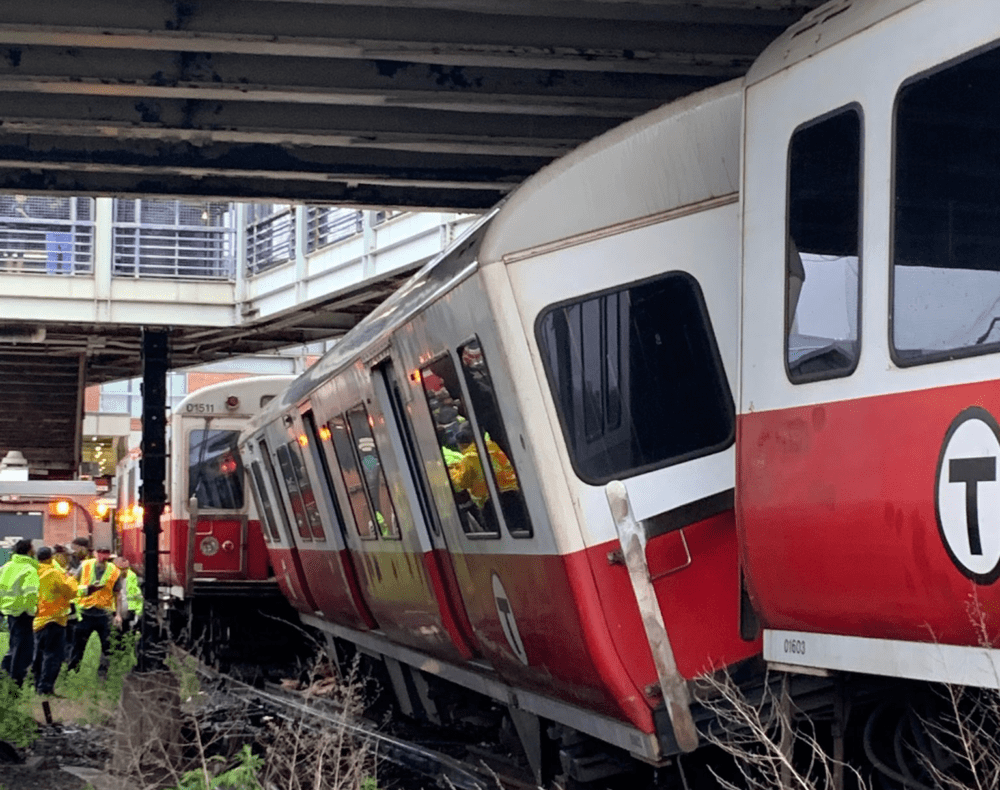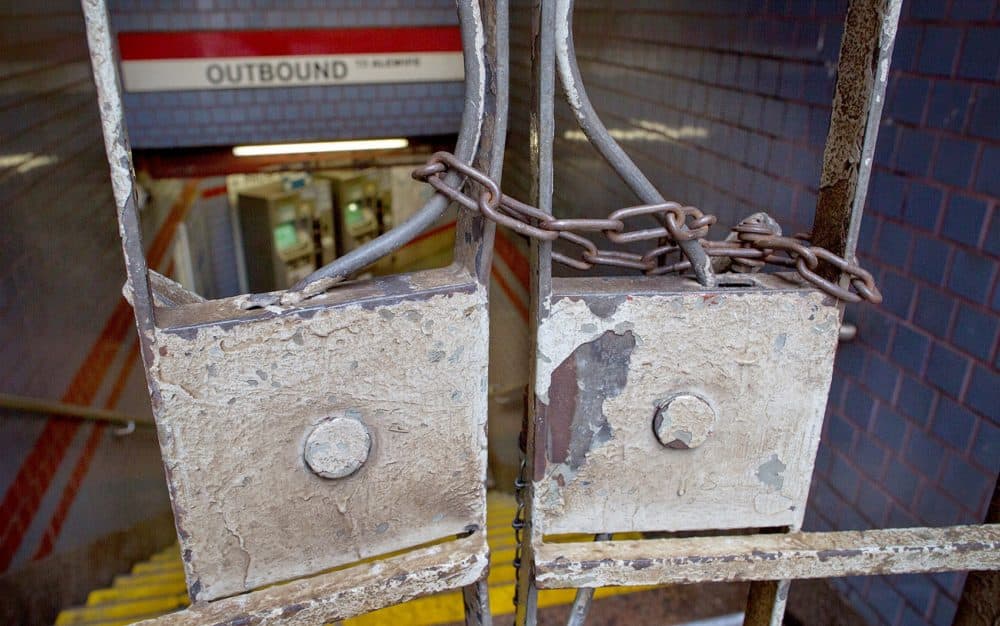Advertisement
Commentary
We Can End Boston's Transportation Nightmare

Unrelenting traffic. Surging ride-hailing prices. And an imminent spike in public transit fares. In any other city, these things would be recognized as symptoms of a transportation crisis, and they would be addressed. But in Boston, they constitute a normal week.
The latest MBTA snafu took place Tuesday morning when a Red Line train to Ashmont derailed near the JFK/UMASS station. Severe delays ensued. Hastily organized shuttle buses crept through rush-hour traffic. Meanwhile, the MBTA issued a boilerplate tweet and encouraged commuters to “seek alternative transportation.” But by the time customers had whipped out their phones to begin ordering a ride, prices had ballooned to as much as $123.
If you’ve lived in Boston for at least a year, then you’ve experienced some version of this before. Each time the MBTA suffers an implosion of service — whether the root cause is a derailment, a signal problem or (my favorite) a smoke-filled train — our city transforms into a "Mad Max" action set piece. It’s every commuter for themselves as we cram into shuttles, blow our rent and grocery money on Ubers, and pray that our bosses will understand, again, why we were late.
And, of course, we do a lot of complaining about how dysfunctional Boston’s transportation systems are and how terrible the traffic is — often on Twitter, to nobody in particular.
But nothing changes. By 5 p.m., our rush-hour stress levels have taken such a physiological toll on our minds that most of us have more or less surrendered to the madness of the Boston commute. We do whatever it is we do to pacify lingering fumes of anxiety and rage. Then we convince ourselves that somehow, the commute will be better tomorrow — that the MBTA won’t break down again, despite decades of insufficient funding from the state, awful leadership appointments and a Legislature that refuses to take Boston’s transit crisis seriously.
What is wrong with us?
The inflection point for Boston should have been the long and infuriating winter of 2015, when the MBTA halted service altogether as monster snowstorms battered the system’s outdated infrastructure. Forget being late to work — many of us couldn’t even get to work.
But work didn’t stop. We were left on our own, out in the cold, to figure out how to continue showing up to our jobs. The city and state offered little help for low-income commuters whose only alternative to public transit would have been walking miles through dangerous subzero winds. What this should have signaled to all of us, with the unmistakable clarity of an ambulance siren, is that Boston — and by extension, the commonwealth of Massachusetts — does not consider public transportation an essential good.

But the winter of 2015 did not lead to a turnover of leadership in the State House, or notable improvements of MBTA service. Quite the opposite. Legislators who’ve undermined efforts to fix the MBTA (including Speaker DeLeo) got re-elected. Commuter rail services cuts were pursued. The cost of riding the MBTA kept going up, despite the system’s worsening reliability and mounting evidence that fare hikes disproportionately hurt the same economically vulnerable people that Good Massachusetts Liberals purport to care about.
And all of these things are bricks in the road that led to Tuesday’s totally normal Red Line disaster.
As a writer covering urban and rural travel, I’ve spent the last few years reporting from cities that alternately prioritize and neglect their public transit networks. Boston doesn’t have a monopoly on subway delays or even underfunded subway infrastructure. But when those problems are paired with our record-setting traffic and the constant fare hikes, the situation in Boston becomes worse than anything I’ve witnessed in recent memory.
Our transportation crisis is destroying the quality of life in Boston (which has already been compromised by the cost of local housing.) And our failure to hold state and city leaders accountable for allowing the MBTA to fall into such disrepair will have grave consequences for our regional economy — not to mention, our credibility as a "Wicked Smaht" metropolis.
We don’t have to put up with a failing transit system.
Thankfully, when it comes to transportation, there are alternatives to Boston’s abysmal reality on the ground. And locally, there are bold voices who have long been championing those alternatives.
Boston City Councilor Michelle Wu’s proposed elimination of MBTA fares would make public transit more equitable and get more vehicles off the roads. Chris Dempsey, a well-known transit advocate and the director of Transportation for Massachusetts, recently suggested that raising the state gas tax by a penny would create revenue that could be funneled toward improving public transportation. State Rep. Mike Connolly has been urging his colleagues and constituents to support a "People's Budget" that would move Massachusetts away from austerity and prioritize goods like public transit and mobility. And of course, next year, we’ll be presented with a roster of primary candidates challenging politicians who've neglected the transit crisis and — get this — we can vote for them.
One of Boston’s charms is the seeming timelessness of local history — the idea that nothing ever changes too jarringly around here. But there’s a darkness to that concept, and Boston's transportation crisis is a reminder that sometimes we can't afford to resist change and accountability.
We don’t have to put up with a failing transit system. There are solutions within reach. We can push our elected officials to embrace them, and if they refuse to budge, we can — and should — elect new officials who believe that transportation isn't a niche issue, but a human right.
Correction: An earlier version of this story misstated Mike Connolly's elected office. We regret the error.
